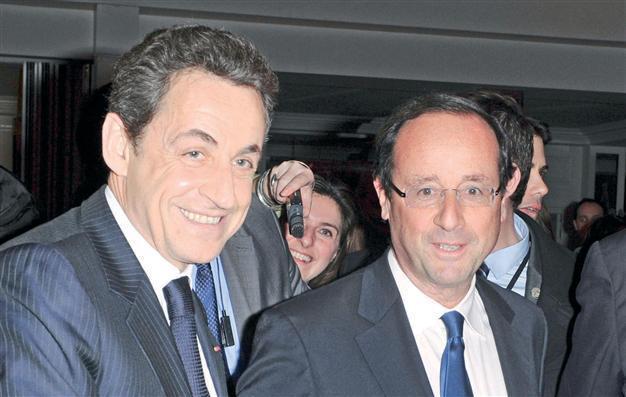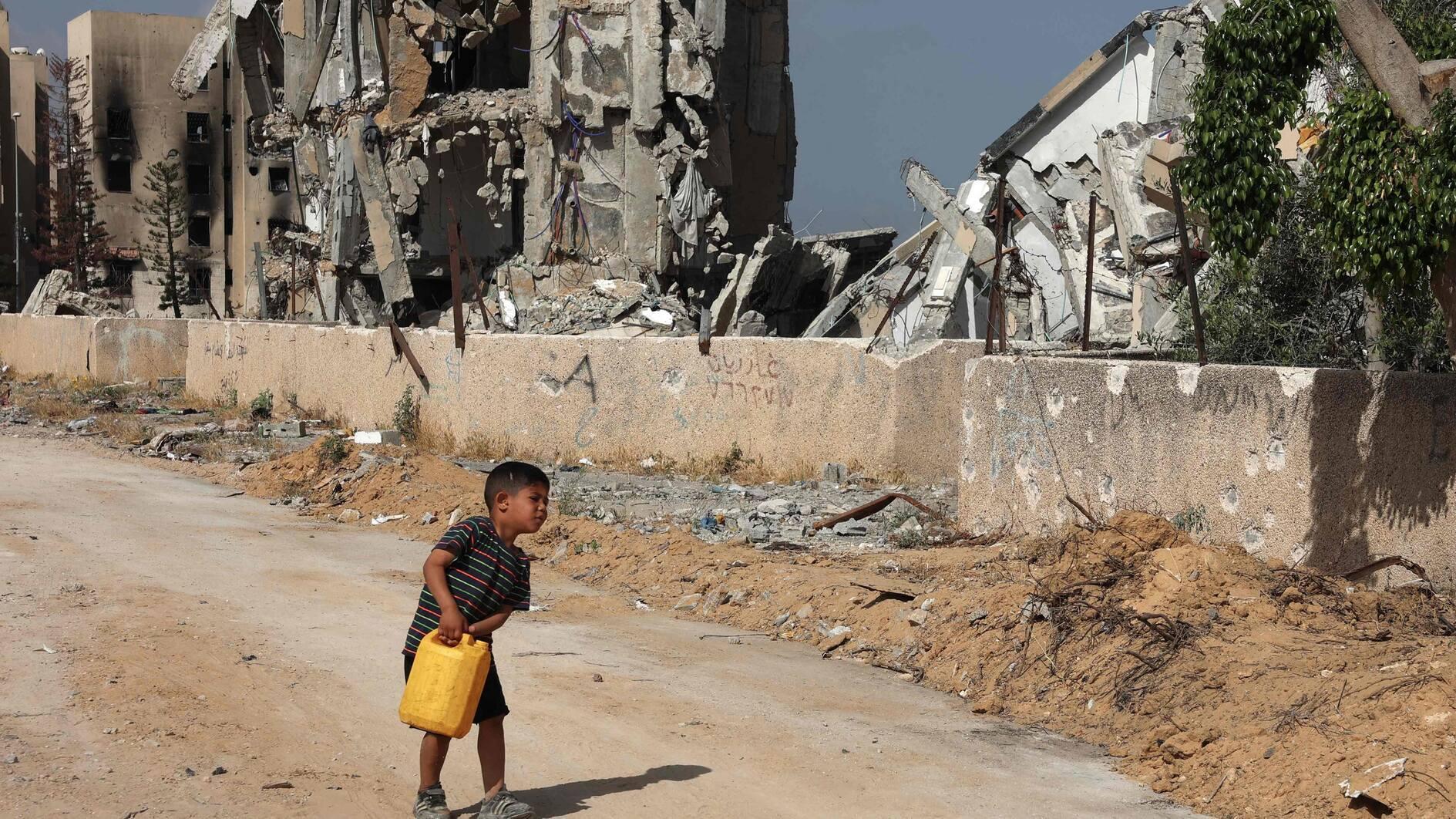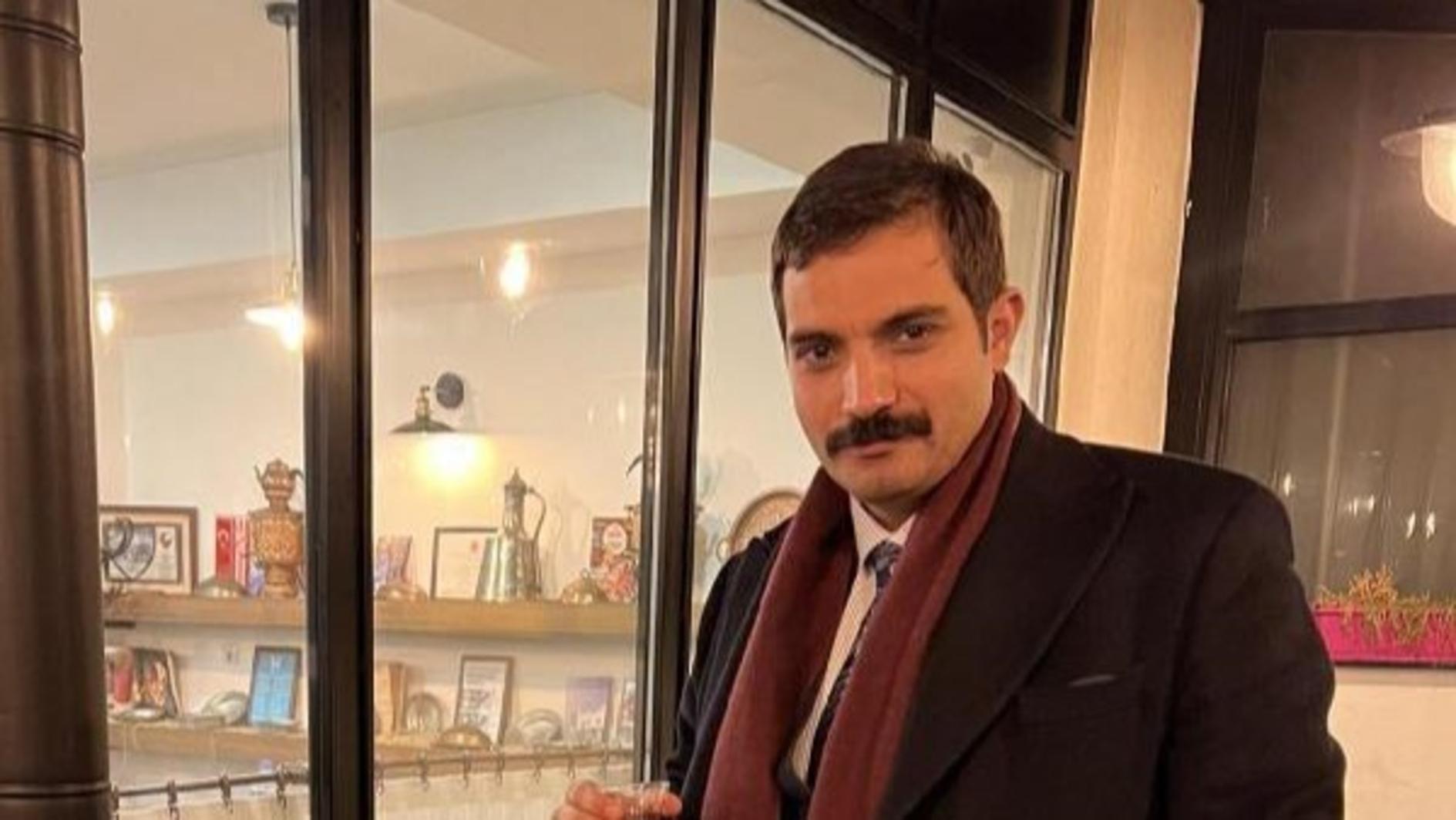Hollande chooses Sarkozy’s budget pact
PARIS - Reuters

France’s former President Nicolas Sarkozy (L) is seen shaking hands with current Francois Hollande in this file photo. AP photo
French President Francois Hollande’s government yesterday kickstarted the ratification of a European Union budget discipline pact it grudgingly accepts as the next step out of the euro debt crisis.Created in March by Hollande’s predecessor Nicolas Sarkozy and 24 other EU leaders including Germany’s Angela Merkel, the fiscal compact requires eurozone countries to slash their public deficits or face legal action and possibly fines.
Its entry into cabinet yesterday paves the way to likely approval by French parliament in coming weeks, despite noisy dissent within Hollande’s left-leaning coalition and growing disenchantment with the European Union among a French public facing 13-year jobless highs and fearing worse to come. “We don’t like this pact, it is a Sarkozy legacy. Merkel insisted on it because France has been breaking stability pact rules since 2003,” said Elisabeth Guigou, head of parliament’s foreign affairs committee, said of existing EU budget rules.
“But you don’t have to love a pact to ratify it. It’s one part of a deal and just the first step,” Guigou, one of the senior Socialists tasked with rallying the coalition behind the accord, told Reuters.
The pact is due to be submitted to the French parliament in early October. It should pass through easily if, as they have stated, some of the deputies in Sarkozy’s conservative UMP party vote for it.
It will be the latest small step towards resolving Europe’s sovereign debt crisis since Germany’s constitutional court this month allowed a permanent bail-out fund to go ahead and pro-European parties came out ahead in a Dutch election.
But the bill’s passage will carry a political cost for Hollande at home and does nothing to forestall a clash with EU paymaster Germany over the deeper measures Berlin believes are needed for the euro’s survival.
















